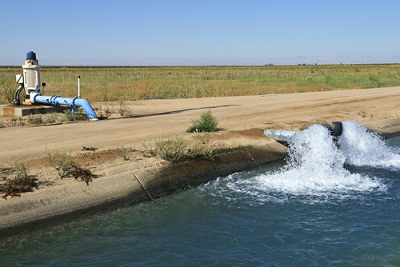Machine-to-Machine (M2M) is a term used to describe any technology that enables automated wired or wireless communication between two devices. Almost every industry can benefit from M2M technology, making it one of the fastest growing industries in this economy.
Just this week, India announced it would be using M2M technology in two major projects both geared toward conserving water. The first project is backed by SPML, which launched a pilot program to improve the country’s water over the next 12 years. The goal of the project is to make water more available.
Currently, residents are able to use a steady stream of water between three and eight hours per day. After this time, they lose their supply and have to make due until the following day. SPML plans to implement M2M technology and 90,000 smart water meters throughout New Delhi to transform the water supply from a half-day, to a full day, every day.

Photo courtesy Shutterstock
Construction company Larsen & Turbo also wants to use M2M technology to back their project. The plan is to better manage expenditures and get an accurate reading from the water meters with the use of an additional 120,000 advanced meters, 40,000 standard meters, and M2M technology.
“As needs for water continue to skyrocket across the globe, M2M and smart meters offer a way to better manage consumption. Not only will this allow utilities to improve operations – maximizing profits and maintaining affordable rates – but it also helps to preserve a very valuable natural resource.”
With the M2M demand increasing, companies are scrambling to supply services. One company that was ahead of the trend was Multi-Tech (News - Alert) Systems. Multi-Tech has become a leader in everything from device networking, unified communications, and open communications gateways, to professional and manufacturing support. Since offering M2M for over 40 years, the company has seen significant growth and can be found on more than 20 million devices.
Edited by Rory J. Thompson
 Internet Telephony Magazine
Click here to read latest issue
Internet Telephony Magazine
Click here to read latest issue CUSTOMER
CUSTOMER  Cloud Computing Magazine
Click here to read latest issue
Cloud Computing Magazine
Click here to read latest issue IoT EVOLUTION MAGAZINE
IoT EVOLUTION MAGAZINE




